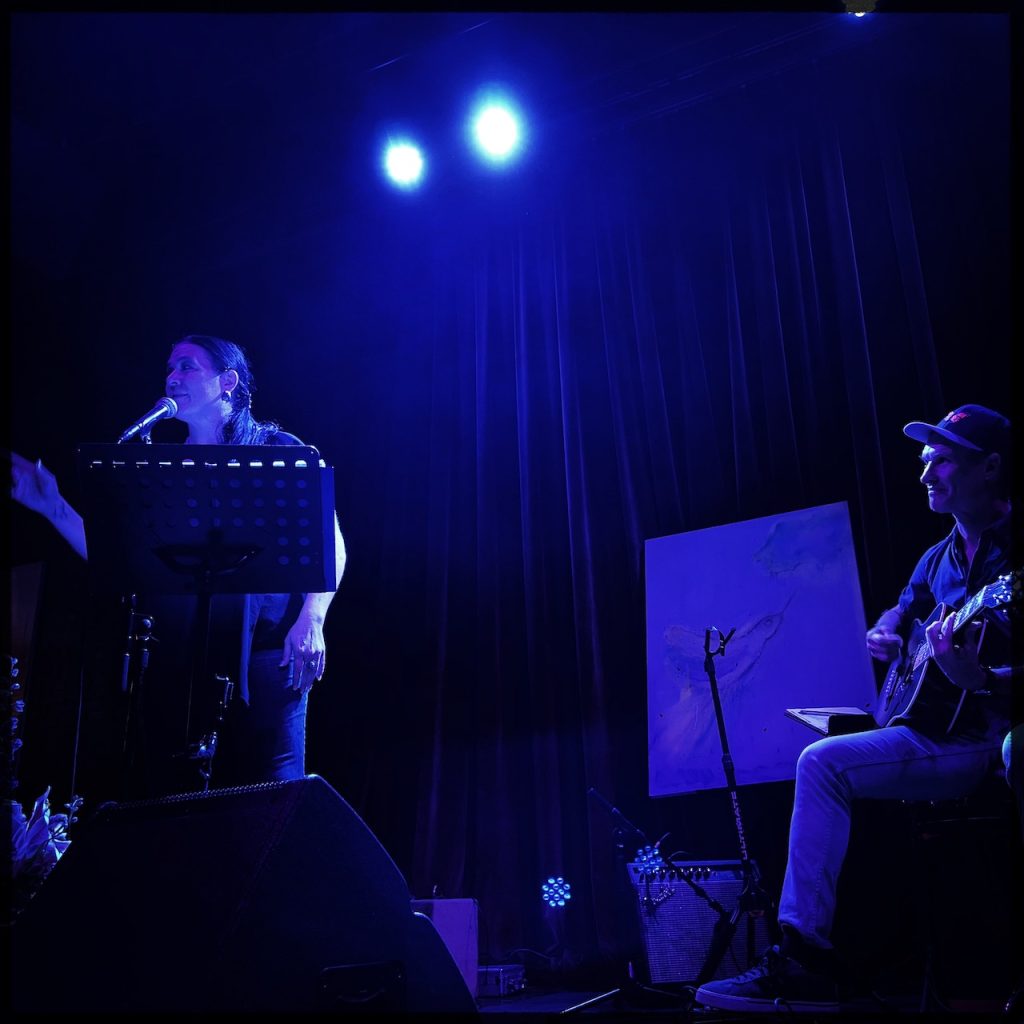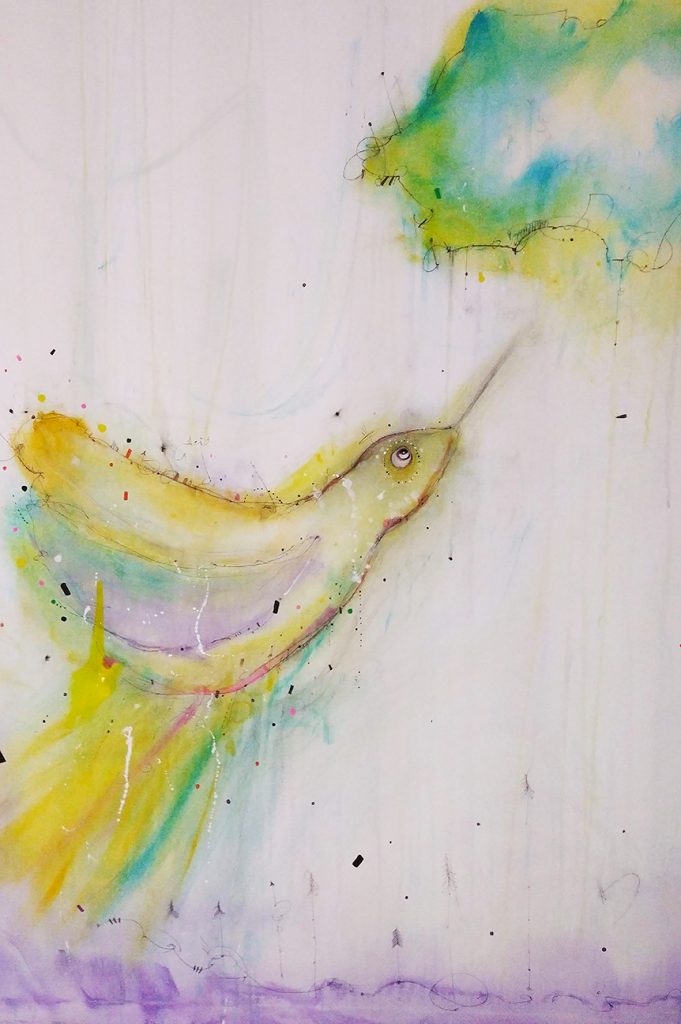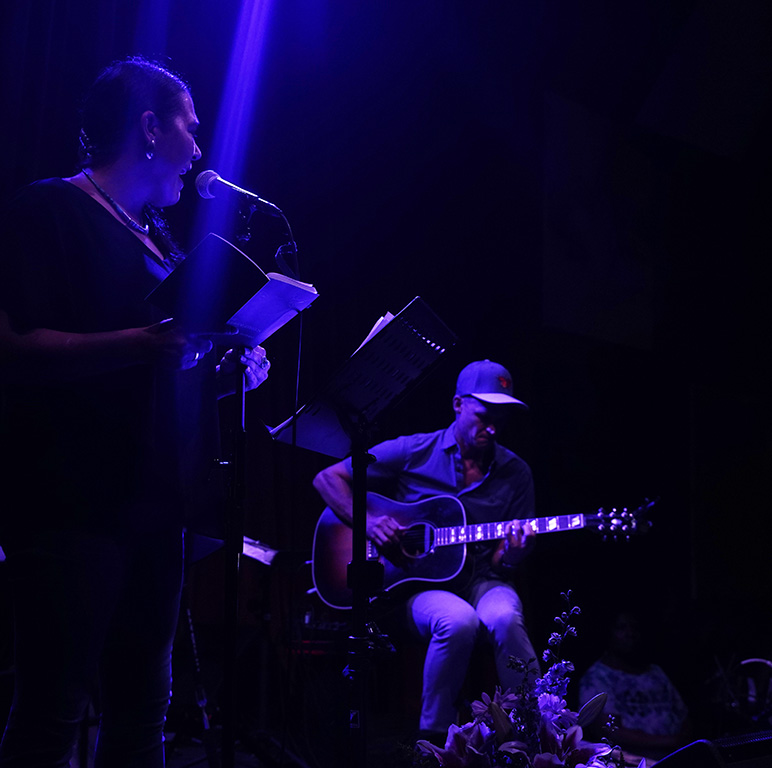The Hummingbird’s Dance: A Voice You Need To Hear – by Sagirah Shahid
To escape the late summer humidity, I arrived to the Minneapolis chapbook album launch of Rosetta Peters’ and JG Everest’s The Hummingbird’s Dance, drenched in my own sweat. Exhausted by my daylight gig of baristing, I welcomed the soft and haunting lighting of Icehouse, noticing the large-scale portrait of a hummingbird propped up against the venue’s main stage.

Like much of the ancient mysteries of biology, a hummingbird’s heart is proportionally too large for its body. Somehow, this too-large heart is exactly the sort of motor the tiny bird needs to keep up with the fierce and constant flap of its wings. JG Everest, who had been tuning his guitar on stage when I entered the venue, invited me to take a closer look at the intricacies of the hummingbird portrait, telling me that Rosie’s brother painted it live on the side of the stage during their first chapbook album release concert in Rosie’s hometown of Marine-on-St-Croix, MN in June.
The giant hummingbird, the fact that Rosetta’s brother drew it, JG Everest tuning his guitar, all felt like an apt teaser into what the night and Rosie’s chapbook and album had in store for us that night.

Like a hummingbird’s heart, Rosetta’s poetry is far too large for conventional containers. There are no books, no written words proportional enough to contain the rasped-voiced, heart-wrenching truths that are Rosie’s poetics. A performance poet and a storyteller where jazz influences and Indigenous narrative traditions find a home in an astute vocal instrument, her collaboration with Everest requires audiences to tap into the internal rhythms of their own heart.
Much like Joy Harjo or Gill Scott Heron, Rosetta’s poetry set to titillating guitar riffs and experimental plucks, invited intimate entrance into Rosetta’s honest storytelling.
From a direct address to her daughter, to poems that frankly addressed Rosetta’s own experiences with abuse, trauma, and healing, the collection is honest beyond what is “comfortable”. Rosetta is not bashful in extending uncomfortable truths, requiring the audience to pause and consider her words. Often inviting Everest’s musical interludes between or within poems. The ebb and flow of continuous performance offers listeners a second space to process between chords, as Rosie’s own reflections with herself invite all to face their own honest truths.

The evening featured multiple performances. Poetry recitations by the finest of the Twin Cities’ local poetry scene started off the event. Chavonn Williams Shen, Ty Chapman, and Michael Kleber-Diggs were the opening acts and recited original poetry that awakened our palates in anticipation of Rosetta and JG Everest. The night concluded in true jazz fashion. There was a surprise performance where Rosetta’s father was invited on stage to join the duo. As her father played his harmonica to Everest’s guitar’s loops, Rosetta performed a final rasped voiced poem, a voice too large ( but in the best kind of way) for the tiny IceHouse stage, where we the audience, hung on the edge of her every rapturous word.